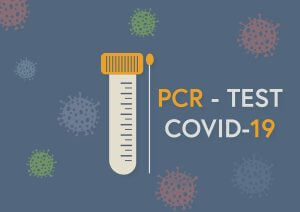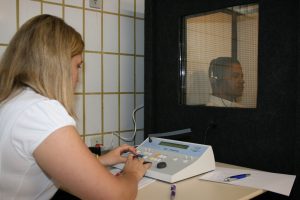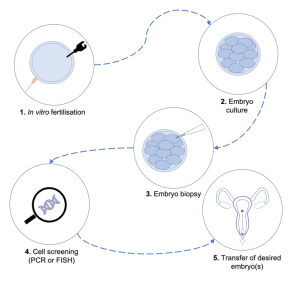Colonoscopy is a complete medical exam of the colon or large intestine. It involves inserting a flexible tube fitted with a small camera through the anus. A health professional uses this procedure to view the colon and rectum’s internal structure for cancer, polyps, or disorders like Crohn’s disease and ulcerative colitis.
Health professionals can also use this procedure to remove tissues and polyps. There are different types of colonoscopy, such as screening, therapeutic, and surveillance colonoscopy. In today’s article, we will talk about colonoscopy in detail. Make sure you read this post thoroughly to get all the necessary information to understand it better.
Screening Colonoscopy
Health professional performs screening colonoscopy to check for inflammatory diseases like ulcerative colitis and cancer. Most colorectal cancers are non-cancerous polyps, which are rapidly-growing cells that can eventually become cancer.
Finding cancer or removing polyps at an early stage is important because it increases a patient’s full recovery chances. During the procedure, a health professional can remove polyps with small instruments such as forceps and snares.
Colorectal cancers are the second leading cause of death for both men and women in the United States. The risk of these cancers is 4.5% in western countries. Screening colonoscopy can help prevent or treat colorectal cancer in its early stages.
Therapeutic Colonoscopy
Doctors use a therapeutic colonoscopy to treat a known disease inside the colon. For instance, the problem can be narrowing or bleeding of the colon. A doctor seals off the bleeding location using medication injections, heat treatment, or clipping the site of bleeding.
A health professional inserts a balloon through the endoscope to widen the colon. The purpose is to remove strictures, which are narrowing or partial colon blockage. The doctor likes to leave a small tube or stent in the narrowed area to keep the colon open.
Surveillance Colonoscopy
It is a follow-up procedure for people with a history of colon disorders, such as polyps, inflammatory bowel disease, and cancer. A doctor performs this procedure on a patient who has a history of colon cancer.
The procedure is performed once every ten years for patients with no symptoms of colon diseases. Doctors recommend surveillance colonoscopy for people aged 50 to 75 with no history of polyps, gastrointestinal disease, or colon cancer.
How often should a person undergo this procedure depend on the intensity of the condition and cancer! It also depends on the abnormalities detected by previous procedures.
Most doctors recommend that even healthy individuals at mild risk for colon cancer undergo this procedure every ten years. However, the procedure is more frequently recommended to people who are above the age of 50.
How to Prepare for Colonoscopy?
A patient who wants an accurate and complete colonoscopy must keep his colon clean. There are many benefits of colonoscopy preparation. Your doctor will usually give you detailed instructions on the cleansing preparation.
For instance, your health provider will ask you to drink a large volume of water. He or she may also ask you to eat a liquid diet and laxative before the examination. It is essential to follow your doctor’s instructions to avoid unsatisfactory results.
For example, if you fail to prepare for the exam, the doctor may not visualize the colon lining due to residual stool obscuration. In such a situation, your health provider will prescribe an alternative test.
Your doctor will instruct you to avoid certain food items for a few days before the procedure. Avoid eating food items like seeds, popcorn, nuts, fatty foods, whole grains, tough meat, raw vegetables, and fruits with peel or seeds. Some doctors also suggest not to eat corn, beans, peas, cabbage, and broccoli.
On the other hand, you can have rice, pasta, white bread, well-cooked veggies, fruits without seeds or skin, eggs, fish, chicken, and lean meat. Stop taking any supplements, including vitamins, and ask your health provider whether you should stop taking prescription medications.
Fast before the Day of Colonoscopy
You can’t have anything solid one day before the colonoscopy procedure. Doctors recommend consuming clear liquids, and you must also stay hydrated by drinking water and other beverages like apple juice, white grape juice, etc.
Although you can drink soda, tea, and coffee, it is essential to consume them without cream. You can also consume gelatin and ice pops, but avoid anything colored purple, red, or blue. These dyes can cause colon lining discoloration and make it difficult for the health provider to see the lining. Likewise, avoid alcohol, milk, and orange juice.
Clear your digestive tract by taking strong laxatives the night before the procedure. Split dosing is the most recommended method for people, which involves drinking a half-gallon of laxative in the evening and drinking another half-gallon of liquid laxative six hours before the procedure.
How to Recover from Colonoscopy?
After the doctor completes the colonoscopy procedure, you will go home. Make sure your family member or friend drives you to your home. If the doctor had sedated you for the procedure, it is crucial to have someone with you for at least one day after leaving the hospital or endoscopy clinic.
Your doctor may prescribe you certain medications if you have nausea. The purpose is to help alleviate nausea and vomiting. During the first 24 hours after the procedure, it is important to refrain from operating heavy machinery or driving for at least one day.
Take stool softeners and pain medications according to the instruction of your health provider. Drink plenty of water and liquids, such as prune juice, to help soften stools. Do not drink alcohol for at least 24 hours after the procedure.
Experts recommend eating high-fiber foods along with over-the-counter fiber supplements. However, you should take supplements when you need them. Take rest, avoid any physical activity like lifting heavy boxes, and not exercise for at least 24 hours.
If you live alone, ask a family member or friend to stay for the night. Do not stop taking daily aspirin to prevent heart problems. Experts say that low-dose aspirin does not harm you after the colonoscopy procedure.
Call Your Doctor
Although there is no or rare complication of colonoscopy, they can occur. In such a situation, we recommend you to call your health provider. For instance, if you have symptoms of chills, fever, rectal bleeding, swelling at the injection site, bloating, abdominal pain, and vomiting, then call your doctor. Likewise, if you have irregular heartbeats or are not feeling comfortable, contact your doctor to seek advice.
If the doctor had removed polyps during the procedure, you would have to alter your activities for at least one week. For instance, you can’t run, lift anything over 5-10 pounds, avoid travel and rest. It is essential to stop taking any blood thinners, but it is crucial to talk to your doctor before you do that.
If you experience unusual symptoms during the first seven days, call your health provider immediately. For instance, if you don’t have a bowel movement or experience troubled breathing, we recommend you to go to the nearest emergency room.
Moreover, if your vomit has bile or blood or your abdomen feels hard and tender, it is wise to call your doctor. Although the recovery period is frustrating for some people, we advise you to stay calm and seek help from your health provider when you do not feel well.
Benefits of Colonoscopy
A colonoscopy exam can detect different conditions like inflammatory bowel disease, colitis, diverticulosis, and colon cancer. Doctors also use this procedure for precancerous and cancerous polyps. The procedure is used to remove any spotted colon polyps.
A painless procedure
Although a doctor will insert a tube-like device in your anus, you won’t feel any pain. The procedure is performed under monitored anesthesia. The doctor will give you medicine intravenously to keep you comfortable and pain-free. Most often, the patient is unaware of the procedure.
A nurse will administer anesthesia and monitor your blood pressure, heart rate, and breathing throughout the procedure. That way, the doctor focuses more on the colonoscopy procedure.
However, you may feel soreness when the doctor or nurse injects the medicine intravenously. Remember, this won’t hurt you. The patient may also pass gas with a startling force for a few hours after the colonoscopy, but it is normal and does not cause any pain.
A Quick Procedure
Doctors recommend patients to take the whole day off work and rest to recover from the sedation. However, getting a colonoscopy procedure is quick and takes about 15 minutes. If you are a healthy person without any bowel symptoms, you don’t need to consult your health provider before the procedure. You can meet your health provider and have a colonoscopy in the same short session.
Suitable for People of All Ages
The procedure is recommended for people at age 50 if they are at average risk. If you have a family history of colon cancer, you will need to undergo the procedure earlier, typically at the age of 40.
If you notice blood in your stool or feel fatigued, talk to your doctor. According to the American Cancer Society, colorectal cancer is increasing among young adults between the ages of 20 and 30. Some studies show that people born in the 90s are at increased risk of colon cancer than individuals born in the 60s.
An Effective, Long-Term Option
There are other screening methods besides the colonoscopy examination. However, it is the best method for detecting and removing colon polyps. Unlike sigmoidoscopy, which must be done every five years, a colonoscopy procedure must be done every ten years if the results are normal.
Some people tend to undergo fecal immunochemical tests because they think the colonoscopy preparation and procedure take time. Remember, fecal immunochemical tests are highly sensitive for colon cancer and become necessary when you have the disease. On the other hand, colonoscopy can detect precancerous polyps and lesions, and it can also prevent these lesions from growing.
Final Words
Several studies published in the New England Journal of Medicine have found that removing polyps that can cause cancer during a colonoscopy procedure can reduce the risk of death from colorectal cancer by 53%. Lastly, it is a safe, painless, and quick procedure that can save your life. If you are 50 years old and have bowel disease symptoms, we recommend you to consult your doctor immediately and schedule a colonoscopy exam.



